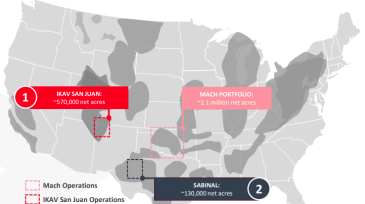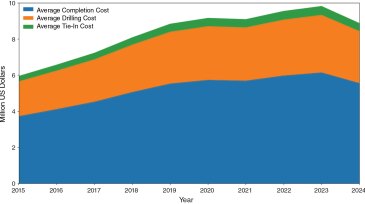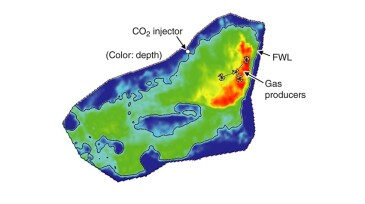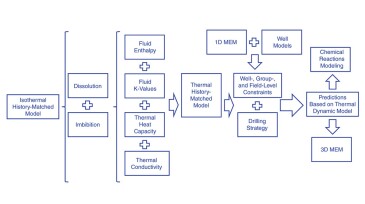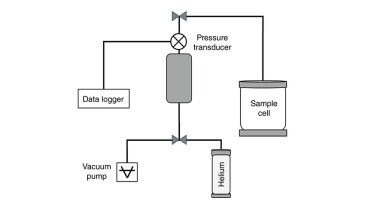Reservoir
Operators are turning to new gas-lift and nanoparticle-fluid technologies to drive up production rates.
This paper addresses the difficulty in adjusting late-stage production in waterflooded reservoirs and proposes an integrated well-network-design mode for carbon-dioxide enhanced oil recovery and storage.
This work presents the development of fast predictive models and optimization methodologies to evaluate the potential of carbon-dioxide EOR and storage operations quickly in mature oil fields.
-
A compelling triptych of recent research showcases the burgeoning capacity of machine learning to unlock substantial efficiencies and enhance decision-making across the exploration and production lifecycle.
-
The latest merger and acquisition report from Enverus Intelligence Research shows deal value fell 21% quarter over quarter.
-
This paper studies the effect of salinity and hardness on partially hydrolyzed polyacrylamide rheology in sandstones with relevance to polymer flooding models and simulations.
-
The traditionally Oklahoma-centric producer adds new acreage in west Texas and New Mexico through a pair of purchases.
-
As Africa’s top oil producer, Libya is ramping up momentum—offering 22 exploration areas and welcoming BP back to Tripoli with a major deal.
-
This study aims to thoroughly assess the influence of various completions, fracturing stimulation, and intrinsic reservoir properties affecting the productivity of 10 major unconventional plays while uncovering insights and trends unique to each play.
-
The authors present an efficient workflow using an embedded discrete fracture model to simulate carbon-dioxide flow by use of conductive faults.
-
This paper provides guidelines for thermal modeling for carbon capture and storage projects in a depleted gas field.
-
This paper introduces new methods to perform reliable permeability and saturation-dependent relative permeability measurements in organic-rich mudrock core samples using a pressure-decay setup.
-
The authors of this paper present a workflow designed to achieve maximum integration between analytical and modeling activities in carbon capture and storage projects.







